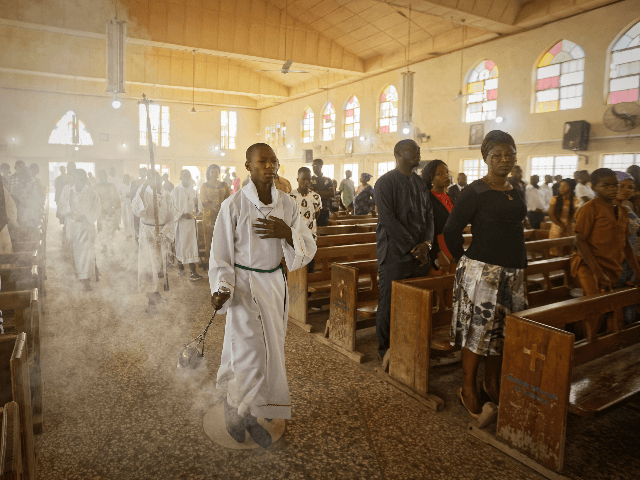Nigeria’s environmental agency said on Sunday it has the power to prosecute mosques and churches that “refuse to abide” by national guidelines limiting public noise pollution caused by unregulated loudspeakers, Nigeria’s Daily Trust newspaper reported Monday.
Aliyu Jauro, the director-general of Nigeria’s National Environmental Standards and Regulations Enforcement Agency (NESREA), told reporters on June 27 that “noise is one of the serious environmental pollutants, adding that a noisy place affects plants, animals and humans.”
“Once they are subjected to the noise, it leads to a lot of health problems ranging from hypertension and other diseases [sic]. So, as an agency, we have a specific regulation on noise control,” NESREA’s director said, as quoted by Daily Trust.
“What we do as an agency is that we go out to ensure compliance. There is a lot of activities people engage in that affect the environment and individuals [sic]. We receive complaints from a lot of people,” Jauro revealed.
“For instance, places like churches, mosques, even industries are causing a lot of noise, which we receive complaints from people, so we do visit such areas, sensitising them about the problem people are facing,” he added.
“We also advise them on how they can go about their activities without polluting the environment by the noise. We carry out enforcement when the need arises,” he said.
“He [Jauro] also called on Nigerians to ensure they complied with environmental rules and regulations, adding that there should be a noise limit in worship centres, industries, and social gatherings, among others,” the Daily Trust reported.
“Jauro said the agency had the mandate and power to prosecute any organisation or individual who refuses to abide by environmental rules and regulations,” according to the newspaper.
Nigeria’s population is roughly 53.5 percent Muslim and 45.9 percent Christian, according to a 2018 estimate by the CIA World Fact Book. The West African nation “has the sixth-largest Christian population in the world (87 million), [and] also has the world’s fifth-largest Muslim population (90 million),” according to an April 2019 report by the Pew Research Center.
Saudi Arabia’s Ministry of Islamic Affairs in late May issued an official statement saying mosque loudspeakers “should be set at no more than one-third of their maximum volume.”
“Speakers that are used to broadcast the [Islamic] call to prayer and the signal for prayers to start should then be switched off, rather than continue to broadcast full prayers and sermons,” the statement read.
The ministry further argued that unregulated mosque loudspeakers “affect the vulnerable, the elderly and young children in the vicinity and drown out prayers held in nearby mosques.”
“In a country that is home to tens of thousands of mosques, many people had welcomed the move to reduce the decibel levels,” the National, an Abu Dhabi-based newspaper, reported on June 1.
Saudi Islamic Affairs Minister Abdullatif al-Sheikh defended the decision on May 31, saying the measure came in response to complaints from the public, including families who “had been complaining that competing speakers were keeping their children awake.”

COMMENTS
Please let us know if you're having issues with commenting.